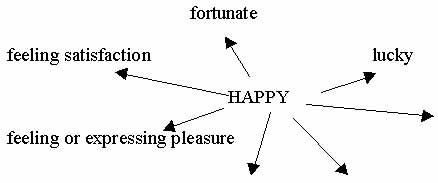To teach students to work in groups
To develop students’ skills of speaking
Objectives:
To give an explanation of happiness
To discuss different points of view
To encourage students to speak about their lives
Development
Organization moment.
Greeting.
- Good morning dear children. I am glad to see you. How are you?
- What is the date is it today? What is the day of the week?
Calling the register.
- Who is on duty today?
- Who is absent today?
Warming up:
We begin our lesson with warming up activity. Let’s try to answer the questions.
a) Can you define “a happy person?”
b) Which things, experiences, people make you happy?
c) Can you think of anything that would make you happier?
d) What one thing do you think most people say would make them happier?
(Most of us believe that money will make us happy. )
e) Do you think we are happier today than fifty years ago?
i) Are you happy today? Have you been happy recently?
TASK 1: What makes you happy? What affects your quality of life? Look at the items below and rank them in order of what makes you most happy.
TASK 2: Do you agree or disagree with these opinions on happiness?(explain)
- Money makes you happy.
- The older you become, the happier you are.
- Men are happier than women.
- Married people are happier than single people.
- People in warmer climates are happier than people in colder climates.
- It’s hard to be happy in today’s world.
- Every country should have a Minister of Happiness.
TASK 3:
TEXT
Read the text and discuss the following questions:
- Why doesn’t wealth, education, youth, marriage, sunny days, religion make the human heart sing? What about friends?
- What should we do to achieve happiness?
What Makes People Happy
So, what have scientists learned about what makes the human heart sing?
Take wealth, for instance, and all the delightful things that money can buy. Research by American psychologists has shown that once your basic needs are met, additional income does little to raise your sense of satisfaction with life.
A good education? Sorry, Mom and Dad, neither education nor a high IQ opens the road of happiness.
Youth? No, again. In fact, older people are more satisfied with their lives than the young. And they’re less prone to dark moods. A recent survey found that people aged 20 to 24 are sad for an average of 3. 4 days a month and people aged 65 to 74 are sad just 2. 3 days a month.
Marriage? A complicated picture. Married people are generally happier than singles, but that may be because they were happy to begin with.
Sunny days? Nope, although a 1998 study showed that Midwesterners think folks living in sunny California are happier and that Californians incorrectly believe this about themselves too.
On the positive side, religious faith seems to genuinely lift the spirit, though it’s tough to tell whether it’s the God part or the community aspect that does the heavy lifting.
Friends? A giant yes. A 2002 study conducted at the University of Illinois found that the most salient characteristics shared by the 10% of students with the highest levels of happiness and the fewest signs of depression were their strong ties to friends and family and commitment to spending time with them.
Words need to be spread – we should conclude. It is important to work on social skills, close interpersonal ties and social support in order to be happy.
TASK 4: Read the 10 secrets to a happy life and discuss.
The 10 secrets to a happy life
1. GIVING
Do things for others - volunteer to work for a charity in your spare time
2. RELATING
Connect with people - get in touch with friends with whom you have lost contact
3. EXERCISING
Take care of your body - go for a run.
4. APPRECIATING
Notice the world around - take time to appreciate wildlife in your area.
5. TRYING OUT
Keep learning new things - learn a new language.
6. DIRECTION
Have goals to look forward to - make resolutions and stick to them.
7. RESILIENCE
Find ways to bounce back - learn from defeats to do things better in the future.
8. EMOTION
Take a positive approach - focus on the happy moments of your life rather than the sad.
9. ACCEPTANCE
Be comfortable with who you are - do not dwell on your flaws.
10. MEANING
Be part of something bigger - join a society or club.
Hometask: Dear students open your diaries and write down you hometask: Write an essay “The happiest day in my life”.
Marks and comments.
Closure: Dear students thanks for your job! Don’t forget to prepare your hometask. You may go. Good - bye!

 Получите свидетельство
Получите свидетельство Вход
Вход












 What is happiness? (52 КB)
What is happiness? (52 КB)
 0
0 1398
1398 102
102 Нравится
0
Нравится
0




